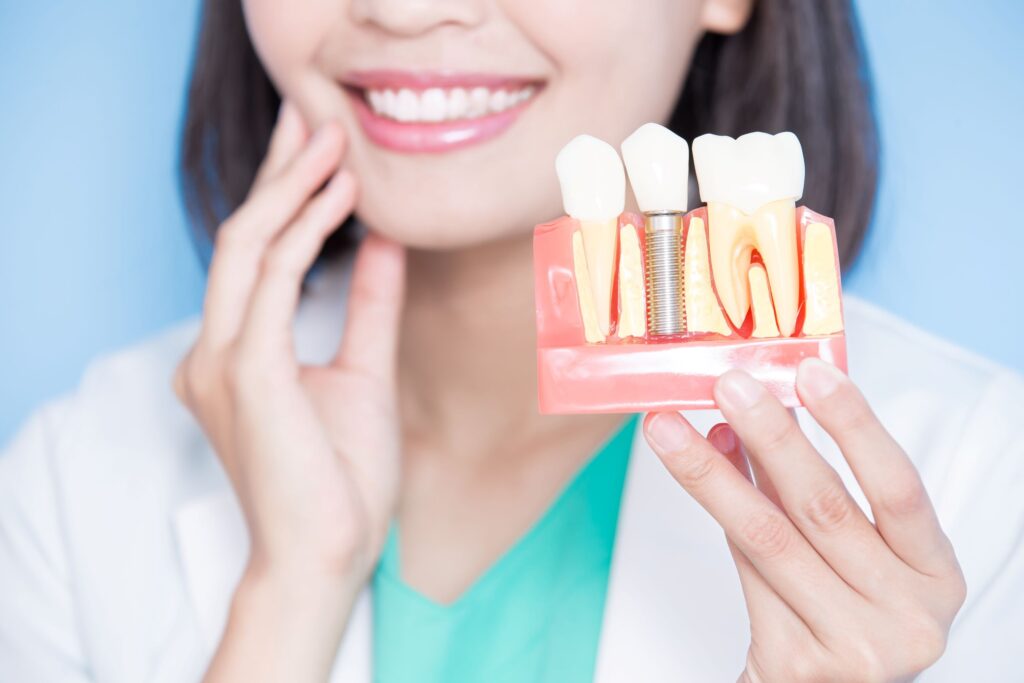
Did you know that many experts consider dental implants the ideal way to replace missing teeth? Unlike dentures and bridges, these restorations include a titanium rod that’s surgically placed in your jaw. Your bone eventually fuses with the biocompatible material, giving it additional strength and stability over alternative treatments.
However, that doesn’t make dental implants invincible. Continue reading to learn about 3 habits you might have that could hurt your new teeth so you can make daily decisions to support your smile instead!
Habit #1: Skipping Dental Hygiene
The dental crown of your implant is typically made from resilient porcelain that’s less porous than enamel. This material can be customized to look just like your natural teeth, but thankfully, you don’t have to worry that it will develop decay or disease.
With that said, you must continue to clean your mouth consistently because bacteria can penetrate your gum tissues or jawbone and erode the materials anchoring your new tooth in place. For example, if germs penetrate the surgical site, you might develop peri-implantitis, the leading cause of failure. This can be prevented by brushing and flossing twice daily, and visiting your dentist every six months for a routine checkup and cleaning.
Habit #2: Smoking Cigarettes
Your provider will likely recommend that you quit smoking several weeks prior to your implant procedure, and might suggest waiting several months before lighting up again afterward. This is because cigarettes, vapes, and other tobacco products contain nicotine. This addictive ingredient also functions as a vasoconstrictor that reduces your blood oxygen supply and flow.
As a result, your body can’t deliver essential nutrients to your mouth to mend itself after your surgery. It also suppresses your body’s immune system, increasing your vulnerability of developing an infection. Smokers are about two to three times more likely to experience failure, and this habit is known to be harmful even years after your implant was placed successfully.
Habit #3: Unhealthy Dietary Decisions
It takes several months to recover after your procedure because your jaw must generate enough new bone to envelop the titanium rod to complete a process known as osseointegration. Once completed, your new tooth is a permanent part of your mouth and has fewer dietary restrictions than dentures or bridges.
However, that doesn’t mean that you’re free to eat what you please immediately after your procedure. Your mouth will likely be sore and swollen for several days, so it’s best to stick to soft woods that won’t irritate your already tender tissues.
Your dentist will likely provide a more comprehensive list of post-op instructions for you to follow that can help you avoid doing anything that might hurt your recently restored smile!
Meet the Author
Dr. Shabnam Tehrani strives to help people improve their daily lives by enhancing their dental health. She earned her Doctor of Dental Medicine from the University of Florida College of Dentistry, and today, she strives to provide a comprehensive menu of world-class services tailored to your individual needs, including dental implants. She partners with local experts to ensure accurate implant placement, then provides resilient, beautiful restorations to close the space in your smile. You can request an appointment on the website or call (813) 751-3044.
